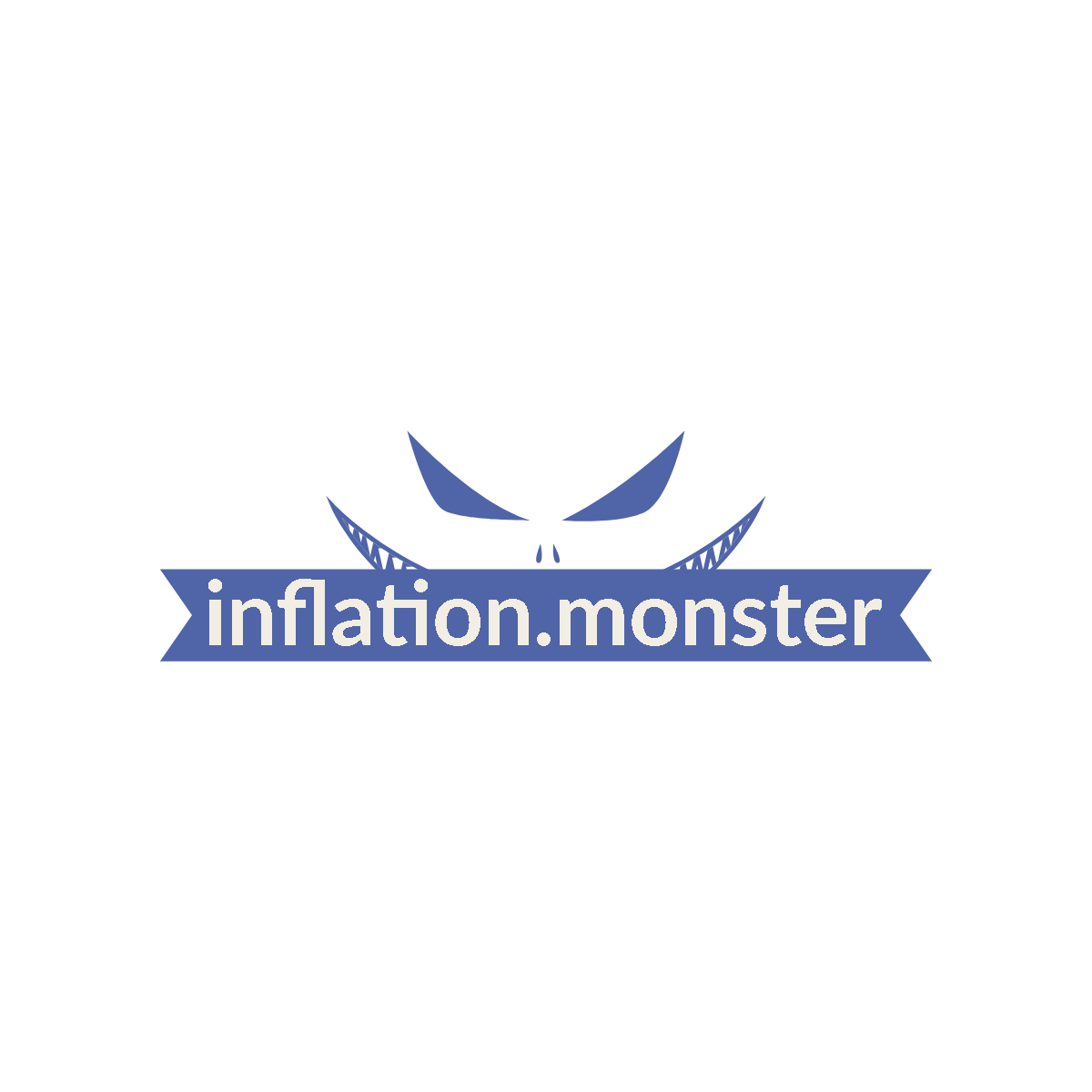Curiosity piqued? Allow us to shed some light on the intriguing topic of consumer behavior in relation to inflation. We, at Inflation.Monster, are here to provide you with a deeper understanding of the psychology behind consumer choices and how they are shaped by the ever-present monster that is inflation. In this article, we explore the intricate ways in which inflation influences our buying habits, decision-making processes, and overall financial behavior. Join us as we take a fascinating journey into the mysterious realm of the psychology of inflation and its captivating impact on consumer behavior.

Understanding Consumer Behavior
Consumer behavior refers to the actions and decisions that individuals or households make when purchasing goods and services. It encompasses a wide range of factors, including psychological, social, and economic influences. To truly understand consumer behavior, we must explore the various factors that shape it, including psychology and the context of inflation.
Factors Influencing Consumer Behavior
Consumer behavior is influenced by numerous factors, both internal and external. Internal factors include personal preferences, needs, and values, while external factors encompass social, cultural, and economic influences. These factors work together to shape consumer behavior, guiding individuals in their purchasing decisions.
The Role of Psychology in Consumer Behavior
Psychology plays a crucial role in consumer behavior. Our thoughts, emotions, and cognitive biases greatly influence our decision-making processes. By understanding the psychological factors at play, businesses can tailor their marketing strategies to align with consumer preferences and needs.
Consumer Behavior in the Context of Inflation
Inflation refers to the sustained increase in the general price level of goods and services over time. This economic phenomenon can significantly impact consumer behavior, leading individuals to adjust their purchasing habits. Understanding consumer behavior within the context of inflation allows businesses to adapt their strategies to better serve their customers’ changing needs.
Cognitive Biases and Decision-Making
Cognitive biases are inherent tendencies in our thinking that sometimes lead to irrational decision-making. Being aware of these biases is essential for both consumers and businesses to make informed choices and avoid common pitfalls.
Anchoring Bias
Anchoring bias occurs when individuals rely too heavily on the first piece of information they receive when making a decision. This bias can lead consumers to overemphasize the initial price they encounter, making subsequent prices appear more reasonable or attractive.
Loss Aversion
Loss aversion refers to the tendency for individuals to strongly prefer avoiding losses over acquiring gains. This bias can lead consumers to make irrational decisions, such as holding onto depreciating assets or avoiding purchases altogether during times of inflation.
Availability Heuristic
The availability heuristic is a mental shortcut that occurs when individuals rely heavily on immediate examples that come to mind when evaluating a specific topic or making a decision. In the context of inflation, this bias can lead consumers to make purchasing decisions based on easily accessible information, rather than considering the broader economic context.
Confirmation Bias
Confirmation bias is the tendency for individuals to seek out and favor information that confirms their pre-existing beliefs or biases while ignoring contrary evidence. In the context of inflation, this bias can cause consumers to selectively seek out information that supports their current perceptions and expectations.
Status Quo Bias
Status quo bias refers to individuals’ preference for maintaining their current situation or decision rather than making a change. In the face of inflation, this bias can lead consumers to stick with familiar brands or products, even if more affordable or suitable options are available.

Perception and Inflation
Perception plays a crucial role in consumer behavior, particularly in the context of inflation. Understanding price perception and the psychology behind it allows businesses to strategize their pricing tactics effectively.
Price Perception
Price perception refers to how consumers perceive the value of a product or service relative to its price. During times of inflation, consumers may perceive price increases as unfair or excessive, leading to a negative impact on their purchasing behavior.
Inflation Illusion
The inflation illusion occurs when individuals mistake nominal price increases for real price changes. Despite an increase in prices, consumers may perceive their purchasing power to remain the same, leading to a distortion in their actual buying power.
Psychological Pricing Strategies
Psychological pricing strategies leverage consumer psychology to create price perceptions that influence purchasing decisions. Strategies such as odd pricing (e.g., pricing a product at $9.99 rather than $10) and prestige pricing (setting prices higher to convey exclusivity) can effectively navigate consumer behavior during periods of inflation.
Emotions and Inflation
Emotions play a significant role in consumer behavior, and understanding how consumers respond emotionally to inflation can provide valuable insights for businesses.
Fear and Anxiety
During times of inflation, consumers may experience fear and anxiety about rising prices and the potential impact on their financial well-being. These emotions can lead to changes in purchasing behavior, such as cutting back on non-essential expenses or seeking out more cost-effective alternatives.
Hope and Optimism
Conversely, consumers may also experience hope and optimism during inflationary periods. They may believe that prices will eventually stabilize or that their income will increase, leading to a greater willingness to make purchases despite rising prices.
Psychological Impact of Rising Prices
Rising prices can have a psychological impact on consumers, influencing their perception of affordability, value, and overall satisfaction with their purchasing decisions. Understanding and addressing these psychological effects is crucial for businesses seeking to maintain customer loyalty and satisfaction.

Inflation’s Influence on Purchase Decisions
Inflation can significantly influence consumers’ purchase decisions through various economic mechanisms.
Income Effect
The income effect refers to changes in purchasing power due to changes in prices. During inflation, the income effect can reduce consumers’ purchasing power as prices rise faster than their income. As a result, consumers may opt for lower-priced alternatives or delay purchases altogether.
Substitution Effect
The substitution effect occurs when consumers switch to alternative goods or services in response to price changes. During inflation, consumers may seek out more affordable alternatives or downgrade their preferences to cope with rising prices.
The Veblen Effect
The Veblen effect refers to the tendency for consumers to desire goods or services more as their prices rise, often as a result of their perceived exclusivity or status symbol. This effect challenges traditional price-demand relationships and can be leveraged by businesses during periods of inflation.
Inflation Expectations and Spending Behavior
Consumer spending behavior is also influenced by inflation expectations. If individuals anticipate higher future inflation, they may be more likely to make immediate purchases and invest their money in assets that are expected to retain their value during inflationary periods.
Effects of Inflation on Saving and Investment
Inflation can have a significant impact on individuals’ saving and investment behavior, altering both risk-taking tendencies and strategies for preserving wealth.
Inflation’s Impact on Saving Behavior
High inflation rates can erode the value of savings over time, incentivizing individuals to seek out alternative ways to protect their wealth. During periods of inflation, individuals may be motivated to save less and explore investment opportunities that can outpace inflation.
Risk-Taking and Investment
Inflation can influence individuals’ willingness to take on investment risks. Inflation erodes the purchasing power of money, encouraging investors to seek out assets that have the potential to outperform inflation over the long term.
Inflation Hedging Strategies
To mitigate the negative effects of inflation, individuals may employ various hedging strategies. These strategies aim to preserve the value of assets by investing in inflation-protected instruments, such as inflation-indexed bonds or tangible assets like real estate or commodities.
The Role of Social Norms
Social norms and peer influence can significantly impact consumer behavior, shaping the choices individuals make and the products they purchase.
Peer Influence
Consumers are often influenced by their social networks, including family, friends, and acquaintances. Social norms and peer influence can guide individuals’ preferences, values, and purchasing decisions, especially when it comes to products that are socially visible or have cultural significance.
Conspicuous Consumption
Conspicuous consumption refers to individuals’ tendency to purchase goods or services to display their wealth or social status. During inflationary periods, conspicuous consumption may be influenced by a desire to maintain or enhance one’s perceived social standing despite rising prices.
Consumer Behavior in Different Social Classes
Social class and income disparities play a significant role in consumer behavior, particularly in the context of inflation. Individuals from different social classes may have varying purchasing power and attitudes towards inflation, leading to distinct patterns of consumption and financial decision-making.
Inflation’s Psychological Toll
Inflation can have a psychological toll on individuals, affecting their stress levels, mental health, and overall well-being.
Stress and Mental Health
The uncertainty and financial strain caused by inflation can contribute to increased stress levels and negatively impact individuals’ mental health. Managing the psychological toll of inflation becomes crucial for both individuals and society as a whole.
Inequality and Social Discontent
Inflation can exacerbate existing income inequalities, leading to social discontent and economic instability. The psychological effects of inequality can breed resentment and erode social cohesion, making it essential for policymakers to consider the potential psychological consequences of inflation.
Strategies for Coping with Inflation-Related Stress
Individuals can employ various strategies to cope with the stress caused by inflation. Building financial resilience, exploring frugal living practices, seeking support through social networks, and maintaining a long-term perspective can help individuals navigate the psychological challenges of inflation.
Marketing Strategies in Inflationary Environments
Businesses operating in inflationary environments must adapt their marketing strategies to cater to changing consumer behavior and price perceptions.
Pricing and Value Perception
Ensuring transparent pricing and providing clear value propositions becomes crucial during inflation. Businesses must communicate the value of their products and services, addressing consumers’ concerns about rising prices and increased cost of living.
Promotions and Discounts
Offering promotions and discounts can help businesses attract and retain customers during periods of inflation. Strategic pricing strategies, such as limited-time offers or bundle deals, can incentivize consumers to make purchases despite rising prices.
Consumer Loyalty Programs
During inflation, maintaining customer loyalty becomes even more critical for businesses. Adopting consumer loyalty programs that reward repeat purchases and offer exclusive benefits can help foster long-term relationships with customers, mitigating the potential negative effects of inflation on purchase behavior.
The Role of Government and Central Banks
Governments and central banks play a crucial role in managing inflation and mitigating its negative impacts on consumers and the economy.
Communication Strategies
Clear and transparent communication from governments and central banks regarding inflation expectations, policy decisions, and economic forecasts is vital to maintain public trust and confidence. Effective communication strategies can help manage consumer expectations and reduce uncertainty during inflationary periods.
Inflation Targeting
Many central banks employ inflation targeting as a monetary policy framework to stabilize prices and maintain macroeconomic stability. By setting explicit inflation targets, central banks aim to anchor consumer expectations and guide their decision-making behavior.
Consumer Protections
Government regulations and consumer protection laws can safeguard consumers’ rights during times of inflation. These protections may include measures to prevent price gouging, ensure transparency in pricing, and provide mechanisms for addressing grievances related to unfair business practices during inflationary periods.
In conclusion, understanding consumer behavior in the context of inflation is crucial for businesses looking to navigate the complex landscape of changing economic conditions. By considering psychological factors, perceptual biases, and the impact of inflation on purchasing decisions, businesses can adapt their strategies to meet consumers’ changing needs and expectations. Likewise, individuals can make more informed choices by being aware of their own cognitive biases and the psychological effects of inflation on their financial decision-making. Ultimately, a comprehensive understanding of consumer behavior in times of inflation can lead to better financial outcomes for both individuals and businesses.




